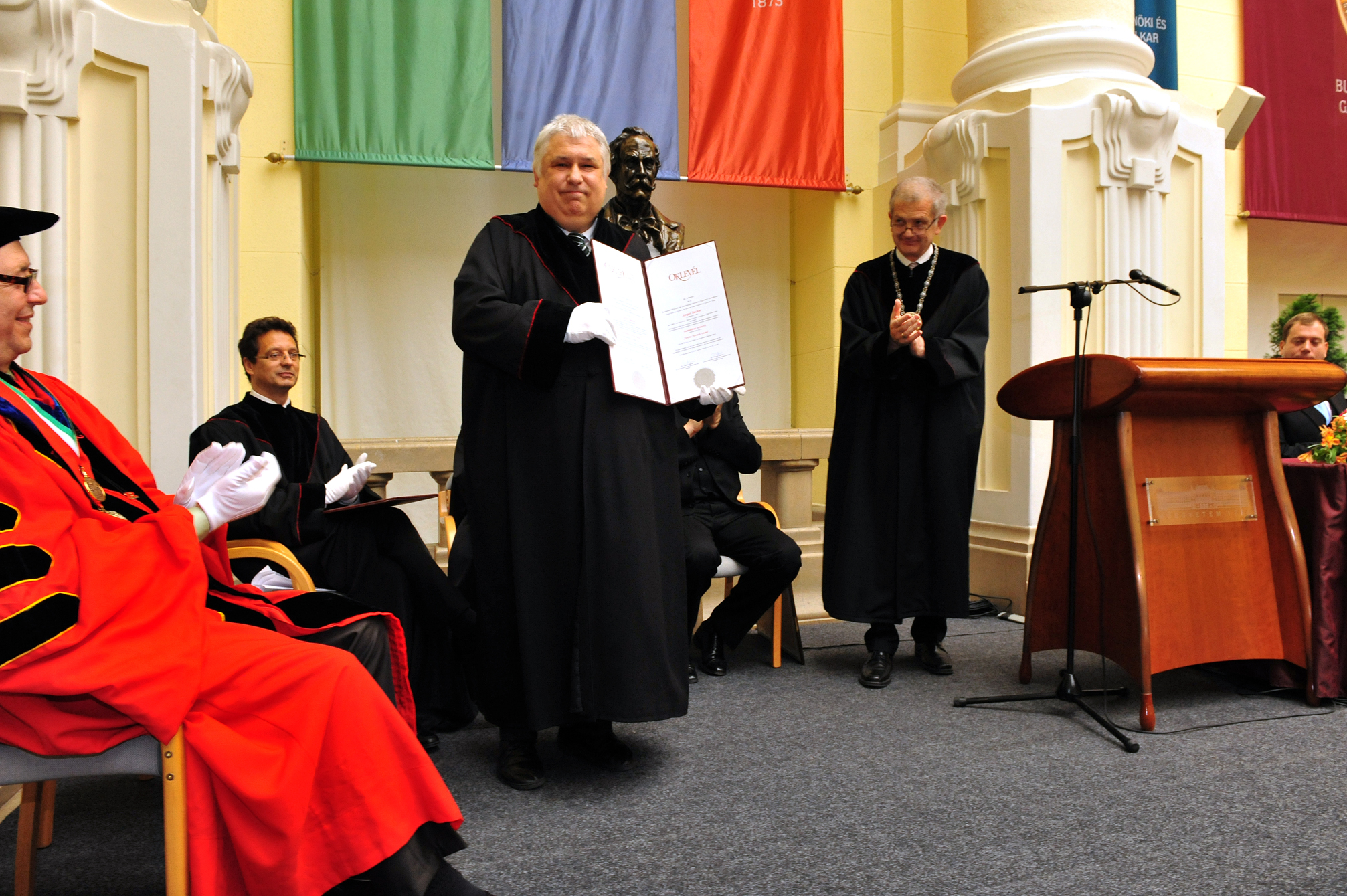Jürgen Becker receives honorary doctorate from TWU Budapest
High honor for the head of the KIT Institute for Information Processing Technology. The Karlsruhe-Budapest partnership began even before the political changes in Eastern Europe.

Honorary doctorate from TWU Budapest: Prof. Jürgen Becker (Photo: TWU Budapest)
Professor Jürgen Becker, who heads the Institute of Information Processing Technology at the Karlsruhe Institute of Technology (KIT), has received an honorary doctorate from the Budapest University of Technology and Economics (TWU). The university is honoring him for his research into embedded systems, including high-performance electronic computing systems for future automotive and aircraft construction. Becker is one of the world's leading scientists in this field.
In his research and teaching, Jürgen Becker focuses on particularly powerful computer processors with several computer cores (multi-core processors) and their use in a wide variety of application areas, such as automotive and aircraft construction, railroad technology and industrial automation. With the ever-increasing demands placed on such computer systems, the single-core processors used to date are reaching their performance limits. One aim of Becker's research is to make the new, highly complex, reconfigurable system solutions usable in future applications, including safety-relevant applications.
A few days ago, the Rector of TWU Budapest, Professor Gábor Péceli, awarded him an honorary doctorate for his scientific achievements in these fields; the laudatory speech was given by Professor László Vajta, Dean of the Faculty of Electrical Engineering and Computer Science at TWU. "I am particularly pleased to receive this prestigious award from Budapest - not only because of the recognition of my scientific work. But also because of the long-standing successful joint activities in teaching," says Jürgen Becker. For more than 20 years, KIT, previously the University of Karlsruhe, has been running a completely German-language engineering course at TWU, in which Becker also teaches regularly. He has been teaching digital technology to first-year students there for eight years. The Hungarian students come to KIT in the fifth semester, and their degree certificates are signed by the rectors and presidents of both institutions.
The contacts between the two universities go back more than 40 years. They were established by the then rectors Professor Heinz Draheim and Professor Imre Perényi through the Iron Curtain - at a time when there were no official relations between Germany and Hungary. In May 1970, they signed a declaration of partnership between TWU Budapest and the then University of Karlsruhe.
After the political changes in Eastern Europe and Hungary's accession to the EU, the degree course finally became possible. TWU Budapest had already awarded Becker's predecessor at ITIV, Professor Hans Martin Lipp, an honorary doctorate for his services to cooperation between the two institutions.
The Karlsruhe Institute of Technology (KIT) is a public corporation under the laws of the state of Baden-Württemberg. It fulfills both the mission of a university and the mission of a national research center in the Helmholtz Association. Research focuses on energy, the natural and built environment as well as society and technology, from fundamental questions to application. With around 9,000 employees, including almost 6,000 in science and teaching, and 24,000 students, KIT is one of the largest research and teaching institutions in Europe. KIT pursues its tasks in the knowledge triangle of research - teaching - innovation.

